Photo
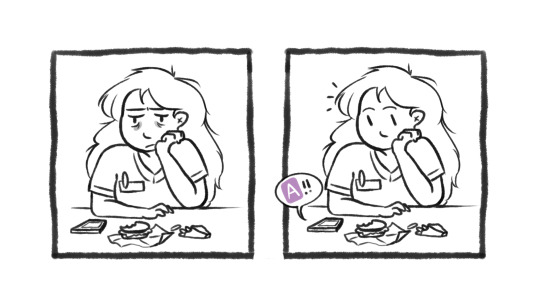
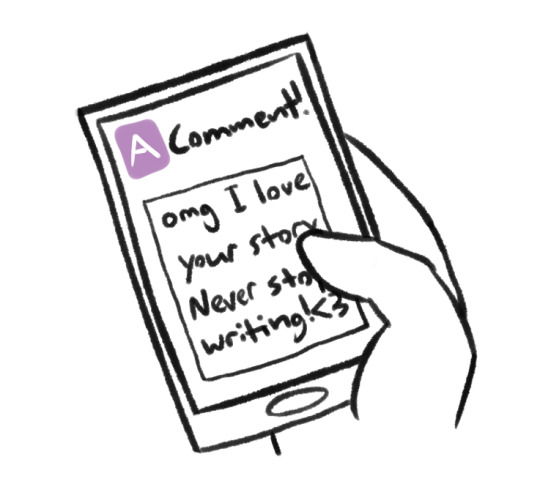
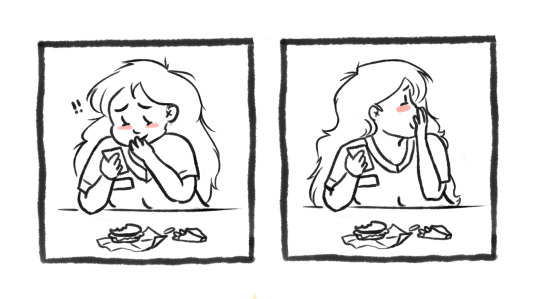
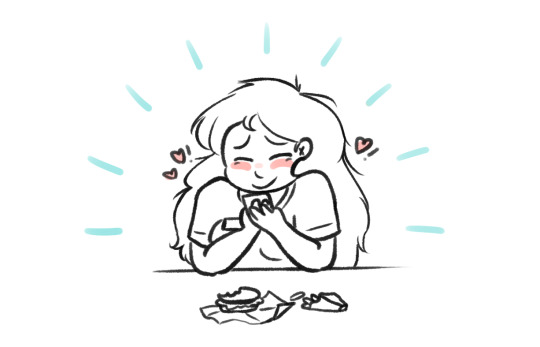
to everyone who’s ever said something kind about my work: you help me get through the day. thank you.
200K notes
·
View notes
Photo
I have partial hearing loss in one ear. Subtitles in movies are the best. I want them for real life also ��

214K notes
·
View notes
Text
reblog if you’re currently writing a book or if you someday hope to write a book.
35K notes
·
View notes
Text
Writing Tip June 4th
A list of body language phrases.
I’ve included a very comprehensive list, organized by the type of body movement, hand and arm movements, facial expressions etc. In some cases, a phrase fits more than one heading, so it may appear twice. Possible emotions are given after each BL phrase unless the emotion is indicated within the phrase. (They are underlined for emphasis, not due to a hyperlink.)
Note: I’ve included a few body postures and body conditions as they are non-verbal testimony to the character’s physical condition.
Have fun and generate your own ideas.:-)
Eyes, Brows and Forehead
arched a sly brow: sly, haughty
blinked owlishly: just waking, focusing, needs glasses
brows bumped together in a scowl: worried, disapproving, irritated
brows knitted in a frown: worried, disapproval, thoughtful
bug-eyed: surprised, fear, horror
cocky wink and confident smile: over confidence, arrogant, good humor, sexy humor
eyes burned with hatred: besides hatred this might suggest maniacal feelings
eyes flashed: fury, defiance, lust, promise, seduction
eyes rolled skyward: disbelief, distrust, humor
forehead puckered: thoughtful, worried, irritation
frustration crinkled her eyes
gaze dipped to her décolletage: sexual interest, attraction, lust
gimlet-eyed/narrowed eyes: irritation, thoughtful, mean, angry
gleam of deviltry: humor, conniving, cunning
kept eye contact but her gaze became glazed: pretending interest where there is none/bordom
narrowed to crinkled slits: angry, distrust
nystagmic eyes missed nothing (constantly shifting eyes): Shifty
pupils dilated: interested, attraction to opposite sex, fear
raked her with freezing contempt
slammed his eyes shut: stunned, furious, pain
squinted in a furtive manner: fearful, sneaky
stared with cow eyes: surprised, disbelief, hopeful, lovestruck
subtle wink: sexy, humor/sharing a joke, sarcasm
unrelenting stare: distrust, demanding, high interest, unyielding
Place To Place, Stationary Or Posture
ambled away: relaxed, lazy
barged ahead: rude, hurried
battled his way through the melee: desperate, anger, alarm
cruised into the diner: easy-going, feeling dapper, confident
dawdled alongside the road: lazy, deliberate delay for motives, unhurried, relaxed
dragged his blanket in the dirt: sadness/depressed, weary
edged closer to him: sneaky, seeking comfort, seeking protection, seeking an audience
he stood straighter and straightened his tie: sudden interest, sexual attraction
held his crotch and danced a frantic jig: demonstrates physical condition – he has to pee
hips rolled and undulated: sexy walk, exaggerating for sex appeal
hovered over them with malice/like a threatening storm: here it’s malice, but one may hover for many reasons.
hunched over to look shorter: appear inconspicuous, ashamed of actions, ashamed of height
leaped into action feet hammering the marbled floor: eager, fear, joyous
long-legged strides: hurried, impatient
lumbered across: heavy steps of a big man in a hurry
minced her way up to him: timid, sneaky, insecure, dainty or pretense at dainty
paced/prowled the halls: worried, worried impatience, impatient, diligently seeking pivoted on his heel and took off: mistaken and changes direction, following orders, hurried, abrupt change of mind, angry retreat
plodded down the road: unhurried, burdened, reluctant
practiced sensual stroll: sexy, showing off
rammed her bare foot into her jeans: angry, rushed
rocked back and forth on his heels: thoughtful, impatiently waiting
sagged against the wall: exhausted, disappointment
sallied forth: confident, determined
sashayed her cute little fanny: confident, determined, angered and determined
shrank into the angry crowd: fear, insecure, seeking to elude
sketched a brief bow and assumed a regal pose: confident, mocking, snooty, arrogant skidded to an abrupt halt: change of heart, fear, surprise, shock
skulked on the edges of the crowd: sneaky, ashamed, timid
slithered through the door: sneaky, evil, bad intentions
stormed toward her, pulling up short when: anger with a sudden surprise
swaggered into the class room: over confident, proud, arrogant, conceited
tall erect posture: confidence, military bearing
toe tapped a staccato rhythm: impatience, irritation
tottered/staggered unsteadily then keeled over: drunk, drugged, aged, ill
waltzed across the floor: happy, blissful, exuberant, conceited, arrogant
Head Movement
cocked his head: curiosity, smart-alecky, wondering, thoughtful
cocked his head left and rolled his eyes to right corner of the ceiling: introspection
droop of his head: depressed, downcast, hiding true feelings
nodded vigorously: eager
tilted her head to one side while listening: extreme interest, possibly sexual interest
Mouth And Jaw
a lackluster smile: feigning cheerfulness
cigarette hung immobile in mouth: shock, lazy, uncaring, relaxed casualness
clinched his jaw at the sight: angered, worried, surprised
curled her lips with icy contempt
expelled her breath in a whose: relief, disappointment
gagged at the smell: disgust, distaste
gapped mouth stare: surprised, shock, disbelief
gritted his teeth: anger, irritation, holding back opinion
inhaled a sharp breath: surprise, shock, fear, horror
licked her lips: nervous, sexual attraction
lips primed: affronted, upset, insulted
lips pursed for a juicy kiss
lips pursed like she’d been chewing a lemon rind: dislike, angry, irritated, sarcasm
lips screwed into: irritation, anger, grimace, scorn
lips set in a grim line: sorrow, worried, fear of the worst
pursed her lips: perturbed, waiting for a kiss
scarfed down the last biscuit: physical hunger, greed
slack-mouthed: total shock, disbelief
slow and sexy smile: attraction, seductive, coy
smacked his lips: anticipation
smile congealed then melted into horror
smile dangled on the corner of his lips: cocky, sexy
smirked and tossed her hair over her shoulder: conceit, sarcasm, over confident
sneered and flicked lint off his suit: sarcasm, conceit
spewed water and spit: shock
stuck out her tongue: humor, sarcasm, teasing, childish
toothy smile: eagerness, hopeful
wary smile surfaced on her lips
Nose
nose wrinkled in distaste/at the aroma
nostrils flared: anger, sexual attraction
nose in the air: snooty, haughty
Face in General
crimson with fury
handed it over shame-faced
jutted his chin: confident, anger, forceful
managed a deadpan expression: expressionless
muscles in her face tightened: unsmiling, concealing emotions, anger, worried
rested his chin in his palm and looked thoughtful
rubbed a hand over his dark stubble: thoughtful, ashamed of his appearance
screwed up her face: anger, smiling, ready to cry, could almost be any emotion
sneered and flicked lint off his suit: conceit, derision, scorn
Arm and Hand
a vicious yank
arm curled around her waist, tugging her next to him: possessive, pride, protective
bit her lip and glanced away: shy, ashamed, insecure
brandished his fist: anger, threatening, ready to fight, confident, show of pride
clamped his fingers into tender flesh: anger, protective, wants to inflict pain
clenched his dirty little fists: stubborn, angry
clapped her hands on her hips, arms crooked like sugar bowel handles: anger, demanding, disbelief
constantly twirled her hair and tucked it behind her ear: attracted to the opposite sex, shy crossed his arms over his chest: waiting, impatient, putting a barrier
crushed the paper in his fist: anger, surrender, discard
dived into the food: hunger, eager, greedy
doffed his hat: polite gesture, mocking, teasing
doodled on the phone pad and tapped the air with her foot: bored, inattention, introspection
drummed her fingers on the desk: impatient, frustrated, bored
fanned her heated face with her hands: physically hot, embarrassed, indicating attraction
fiddled with his keys: nervous, bored
firm, palm to palm hand shake: confident, honest
flipped him the bird: sarcastic discard
forked his fingers through his hair for the third time: disquiet/consternation, worry, thoughtful
handed it over shame-faced: guilt, shame
held his crotch and danced a frantic jig: physical need to relieve himself
limp hand shake: lack of confidence, lack of enthusiasm
propped his elbow on his knee: relaxed, thoughtful
punched her pillow: restless, can’t sleep, angry
rested his chin in his palm: thoughful, worried
scratched his hairy belly and yawned: indolent, bored, lazy, relaxed, just waking
shoulders lifted in a shrug: doubtful, careless discard
slapped his face in front of God and country: enraged, affronted/insulted
snapped a sharp salute: respect, sarcastic gesture meaning the opposite of respect
snapped his fingers, expecting service: arrogant, lack of respect, self-centered
sneered and flicked lint off his suit
spread her arms wide: welcoming, joy, love
stabbed at the food: anger, hunger, determined
stood straighter and smoothed his tie: sudden interest, possible sexual interest
stuffed his hands in his pockets: self-conscious, throwing up a barrier
sweaty handshake: nervous, fearful
touched his arm several times while explaining: sign of attraction, flattery, possessive
wide sweep of his arms: welcoming, all inclusive gesture, horror
Sitting or Rising
collapsed in a stupor: exhausted, drunk, drugged, disbelief
enthroned himself at the desk: conceit, pronouncing or taking ownership
exploded out of the chair: shock, eager, anger, supreme joy
roosted on the porch rail like a cock on a hen house roof: claiming ownership, conceit, content
sat, squaring an ankle over one knee: relaxed and open
slouched/wilted in a chair and paid languid attention to: drowsy, lazy, depressed, disinterest, sad, totally relaxed, disrespectful
squirmed in his chair: ill at ease, nervous, needs the bathroom
Recline
flung himself into the bed: sad, depressed, exhausted, happy
prostrated himself: surrender, desperate, miserable, powerless, obsequious, fawning, flattering
punched her pillow: can’t sleep, anger, frustrated
threw himself on the floor kicking and screaming: tantrum
Entire body and General
body stiffened at the remark: offended, anger, alerted
body swayed to music: dreamy, fond memories, enjoys the music
bounced in the car seat, pointing: excitement, fear, eager
cowered behind his brother: fear, shyness, coward, desperate
curled into a ball: sorrow, fear, sleepy, defensive
heart galloping: anxiety, joy, eager
held his crotch and danced a frantic jig
humped over his cane, each step shaking and careful: pain, aged
inhaled a deep breath and blew out slowly: buying time to find words/thoughtful, reconciled
quick and jerky like rusty cogs on a wheel: unsure of actions, self-conscious, tense, edgy
rocked back and forth on his heels: impatient, cocky, gleeful
manhandled the woman into a corner: bully, anger
slumped shoulders: defeat, depressed, sad, surrender
stiff-backed: priggish, haughty, affronted
stood straighter and straightened his tie: sexual interest, wants to make an impression
stooped and bent: aged, arthritic, in pain
stretched extravagantly and yawned: tired, bored, unconcerned
sweating uncontrollably: nervous, fear, guilt
tall erect posture: confidence, military bearing
was panting now at: afraid, exhausted, out of breath, sexual excitement
-Sharla Rae
73K notes
·
View notes
Text
Let's talk about mynoise.net
Have you ever been listening to Rainymood and thought, “Yeah, this is good … but it would be nice if I could customize the sound more, or if there was a little more choice.
Let me introduce you to MyNoise.
MyNoise is a customizable sounscape looper with so many options, even within each soundscape. So say, for instance, you really love rain sounds when you write or study or relax. Anything. I know I’m a big fan of rain sounds. They have a page for that.
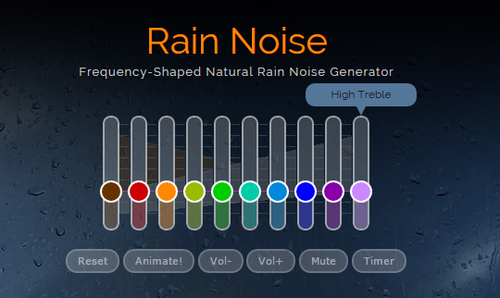
But say you like really high, pattery rain, and LOTS of low thunder. Here’s where MyNoise really stands out: you can customize that. See those sliders with all the cute colors? That is your equalizer. You can adjust the levels based on what you want to hear more and less of. Here’s how it looks when you want high, pattery rain and low, rumbly thunder:
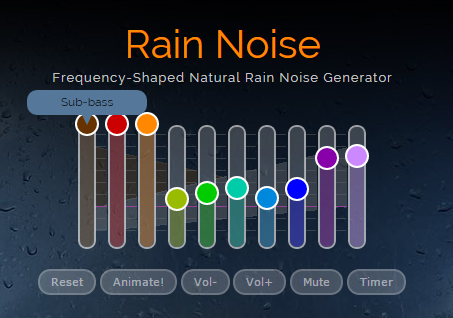
But say rain isn’t really your jam. Say you want something a little more ambient, a little more background noise-y. Something with people. Well, they have customizable coffee house chatter that even has the levels listed for things like “kitchen,” “babble,” and “table”:

Or say you miss the ocean.
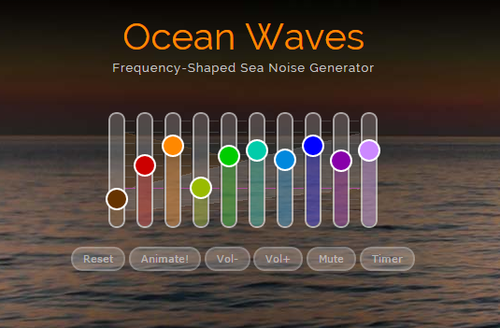
Or say you miss your cat.

Or say you miss your spaceship.
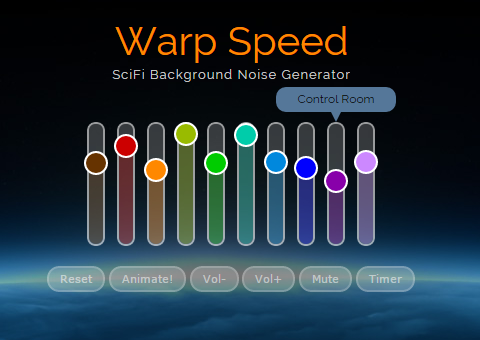
Or say you miss the dungeon where you and your team of scalawag adventurers used to explore and face off against, say, dragons. In the dungeon.
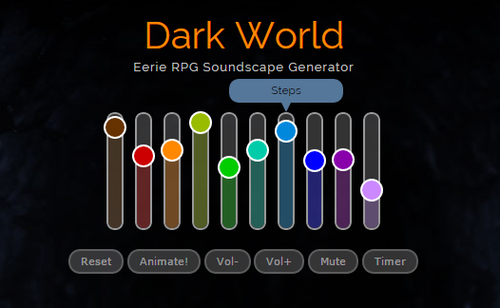
This site is seriously so helpful, and those are just a fraction of every kind of sounscape the site has to offer. The best part is that if you want to layer it with music (for instance, I’ll layer a playlist + rain + coffee shop if the scene I’m writing takes place in a coffee shop), you can adjust the master volume, meaning all of your layers stay at their respective volumes, just louder or quieter.
Enjoy!
402K notes
·
View notes
Text
To all writers, poets, photographers, musicians, artists, etc:
It is not said enough. Thank you so much for pouring your emotions, experiences, thoughts, and energy into your original works. Your masterpieces never fail to transport me to another place, whether it be emotional, physical, or cognitive. I also get a sense of who you are and it is remarkable witnessing your own growth through your creations. You all inspire me in myriad aspects of life for which I am extremely grateful. I recognize and appreciate the courage it takes to share yourselves through art, and I am eager to read/view/hear what you create next! The world would be anemic without you. Stay extraordinary :)
2K notes
·
View notes
Photo
😉

reblog if you want more interaction w your lovely followers
413K notes
·
View notes
Text
Airtable for Novel Writing
Has anyone else discovered Airtable as a way to organize your wips? I love my Scrivener, but sometimes I just need a good ol’ Excel spreadsheet to keep organized.
Airtable is a beautiful hybrid of Google Sheets and Trello—and it’s totally free.
Airtable offers unlimited workspaces and the ability to view information in different ways. Want it just to a spreadsheet? Great, there’s Grid View and the ability to filter and sort a dozen different ways. Want some color? Use Gallery View—upload images to your heart’s content. Need to see a calendar? Insert some dates and boom, baby.
Airtable even has a bunch of templates for novel writing, screenwriting, etc. Go nuts.
I’m using it to organize my wips by universe:
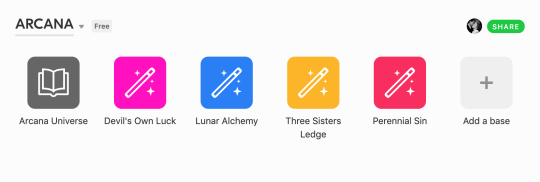


If you’re like me and you get overwhelmed by your story ideas if you don’t stay on top of them—Airtable might be for you.
3K notes
·
View notes
Text
Writers: please,,,,,, give us one (1) comment,,,,, one small crumb of validation,,,,,
Readers, hitting us w brooms and hissing: ❤
2K notes
·
View notes
Text
I'm terrible at writing one shots but I can really appreciate when one is well done like this. I love it!
The vampire smiled at me from across the ballroom, blood still staining his teeth.
"You realize you can't kill me with that." He gestures to the revolver I have pointed at him. "I'm immortal."
"You make it sound like I should care." I reply, as I open up a hole between his eyes. The force of the shot knocks him on his back, and it's quiet.
A chuckle fills the room.
"You are brave." He comments as he flips himself upright. "Your blood will keep me nourished for a long time." He manages a few steps before I get another shot in him.
He stays standing this time, a glazed look over his eyes before he recovers again.
"Little girl, your not going to save yourself." He chuckles, getting closer now. Another shot. Dead eyes that flash with anger when he's back. "You insolent child." He rages, now racing to me.
I fire twice more before he slams me into the wall. My gun is forced down, pressing against his chest. Perfect.
"Anything to say? Or will you let me feed in peace?" He growls now. I smile brightly and lean toward his ear.
"Silver bullet." I whisper. His eyes grow wide as I pull the trigger and fill his heart with the purest metal.
4 notes
·
View notes
Text
Things to Consider when Creating a Magic System
What are the drawbacks of using magic? Does it have mental, physical, and/or emotional consequences for the user?
What tools are needed to harness magic? Wands? Spells? Magical artifacts?
How do people learn magic? Instinct? In school? From family members?
Can everyone use magic or are only certain people capable of using it?
Is the capability to use magic hereditary? What about different ways of using magic (transformation powers, teleportation, etc.)?
What is impossible for magic to do?
How long does it take to master different magical skills?
Can creatures other than humans learn magic? Are different creatures better at using different kinds of magic?
Does it require spells to be spoken, written, or thought?
Is it possible for someone to lose their magical abilities?
How do characters’ emotions affect their ability to use magic? Do their emotions affect the magic’s intensity or controllability?
How does the strength of a person’s magical abilities change as they age?
Can people normally perform any kind of magic or can they only perform things that fall under their specialty? Are their exceptions?
What rules restrict magic use in society?
How do people’s magical abilities impact their career prospects?
What kinds of magic are the most feared or seen as the most powerful? Which are seen as mere jokes?
How do people use magic to help with everyday tasks?
Can magical energy be stored for later use?
What objects or other factors can amplify someone’s magical powers?
When do magical abilities initially manifest? From birth? At a certain age? Under certain conditions?
What is the first spell a character is likely to learn?
What happens if a spell is performed incorrectly? Nothing at all? A weaker version of the intended results? Pain?
Can different spell casting methods be used to obtain the same result? What are their advantages and disadvantages?
25K notes
·
View notes
Text
Good for those who are trying to write around the size of a mansion in their fiction
Random mansion generator
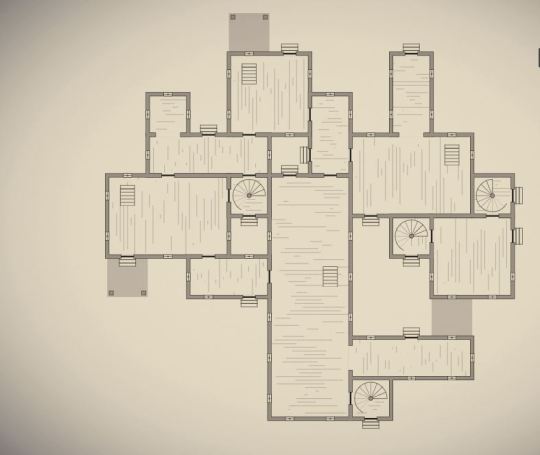

The Procgen Mansion Generator produces large three-dee dwellings to toy with your imagination, offering various architectural styles and other options. Each mansion even comes with floorplans:
https://boingboing.net/2019/07/12/random-mansion-generator.html
241K notes
·
View notes
Note
I'd probably benefit from deliberate practice, as in that I can measure in some way (privately) how well I did. Like, how a piano player practices repeating chords or the same section of a music piece again and again. But I have no idea HOW to practice WRITING because there's almost only advice what to do, no concrete ideas or tips for actual exercises. It's very frustrating. Do you maybe have something in mind if I may ask?
The reason it’s so difficult to find something concrete for practicing writing is because there is no concrete way to measure whether you did well or not. There is no rubric out there or scale to measure “good” vs. “bad” writing. Success and failure to achieve something in writing is entirely subjective and based both on yourself and how you feel it went, as well as your audience’s perception of whether you did it well, which is entirely based on each individual’s personal preference. How do you put personal preference on a rubric?
To use your own metaphor, playing an instrument is a much more definable art with a definitive good and bad–you either hit the notes or you don’t–with a more subjective portion that comes in later–infusing feeling into the notes. Writing’s objective portion is simply the grammar and spelling of it. Literally everything else about it is subjective. The practice of a piano player is repetition, and the player can see the improvement as they hit more notes consistently. Writing’s practice is also repetition, but that repetition is found in the literal act of writing itself. By writing–writing anything–you are practicing the craft.
Looking for specific exercises on the internet is tough because of this very reason: the exercises are simply writing. Trying to write, again and again. Trying to capture a feeling or a story or a mood, again and again. That’s practice. There are some specific exercises in creative writing textbooks, but for the most part, it’s up to you to choose an aspect of writing that you want to improve, and then write with that aspect in mind, observe what makes that aspect function, and see if you can bring that particular aspect out on the page.
Maybe you choose tone. First you have to know what tone is, and how it’s different than mood. Once you know what makes tone apparent on the page, your job is to sit down and write. Write with the express purpose of showing tone on the page.
Maybe you choose setting. You have to know what aspect of setting you want to focus on. Is it that you want to do a better job of bringing the senses out in your descriptions of settings? Or do you want to practice weaving settings through interspersed details in a scene, rather than info-dump-style descriptions? Or something else? Then sit down, maybe with a prompt to get you started, and write with that focus in mind.
Maybe you choose character development. Decide what part of character development you want to improve. Are you trying to do better at conveying emotion? Are you focusing on how to write romance between characters? Are you interested in improving how you share a character’s backstory through context clues rather than info-dumps? Sit down and write a scene that allows you to showcase these types of developments in characters and see how you do with it.
These exercises are basically free-writing with little-to-no intention of turning them into full stories. They’re drabbles or vignettes where you try to bring out a particular part of writing. The easiest way to see if you succeeded with your objective of showcasing a specific subject of the writing craft is to share it with someone else and see how they react. Otherwise, it’s up to you to read through it again and see whether you like what you’ve done. If not, do it again. And again. And again. And then write stories, and write more, and more. The only way to improve is by literally going out and writing.
Mostly, you’re going to find what you’re looking for in creative writing textbooks and help guides like the two Glimmer Train Guide to Writing Fiction books (x, x) and others, but here are some exercises I’ve done to help improve certain things in my own writing:
Dialogue:
> Go sit in a public place and listen to a conversation. Transcribe it as exactly as you can. Rewrite the conversation as a scene. > This exercise focuses on: Observing how “realistic dialogue” in narrative differs from actual, real-life conversations.
> Write one side of a conversation. Make sure that the audience understands what’s being said on the unheard side of the conversation without ever repeating what the other side says. > This exercise focuses on: How to relay information to an audience through context clues and implication.
> Write a wordless conversation. Consider how people communicate back and forth with each other without ever speaking a word. > This exercise focuses on: How body language can be used to convey meaning and emotion.
> Write an argument by the end of which it becomes clear the characters are not actually arguing about what’s on the surface. > This exercise focuses on: Writing subtext and the human tendency to speak in doubletalk.
> Write a conversation that does not use tags. Focus on making it clear to the audience who is speaking, how many people are a part of the conversation, and an impression of what their life is like. Try not to resort to literal introductions. > This exercise focuses on: How to bring out the voices and history of various characters through their spoken words.
Setting:
> A character encounters the most mouthwatering smell they’ve ever had the pleasure of smelling. Describe it. > This exercise focuses on: How to integrate the often forgotten sense of smell into descriptions and its impact on people.
> A character walks into not just a spooky house, but an absolutely terrifying one. Make the audience feel the fear. > This exercise focuses on: Conveying the mood of a setting and how to integrate emotion not only into a story but into the audience.
> Alternatively, the house isn’t spooky or terrifying, but it is horrific. What changes about the scene, and how do you convey that difference to the audience? > This exercise focuses on: Also conveying mood and emotion, but also being specific with the emotions and feeling of a place, and how to differentiate between similar ones.
> A character is overcome with nostalgia. Help the audience understand the nostalgia while also feeling the profound loss or difference between the memory and the reality. > This exercise focuses on: Integrating character history into description of a place, emotion, a sense of time.
> Write a scene in which a blind character arrives at a new location. Use their senses other than sight to describe what’s around them and where they might be. > This exercise focuses on: Using senses other than the typical fall-back of sight.
Character Development:
> Find an old picture in an online archive, but don’t read the description. Write a scene about who the people in the photograph are, what led them to this moment, and where they’re headed next. What’s their fate? > This exercise focuses on: Imagining character through visual input, inferring details about them, and conveying those through story.
> Alternatively, find a portrait or painting and write a scene in which the painter is the main character. What is the person who painted this art like? What were they thinking about when working on this piece? What kind of conflicts may they have been facing at the time of its painting? > This exercise focuses on: Imagining character by examining their actions/things they’ve made.
> Write a scene from the perspective of an unreliable narrator where what truly happened is quite different than what the narrator tells the audience occurred. > This exercise focuses on: The use of narration and how it can influence the story and what the audience understands about what’s going on.
> Write a thank you letter for an unwanted gift; the gift is a work of art. Focus on conveying the character of the person penning the letter. Who are they? How do they handle the situation? What will they do with this gift? What do they think of the person who sent it? > Step it up: Write another from a character who received the same gift but has an entirely different reaction to it. > This exercise focuses on: Conveying voice and character by looking at reactions, words, and attitudes.
> Write a scene in which a character reacts to an event in the opposite way one might expect and takes action in an unexpected manner. Focus on how you can convey the character’s reasons for their actions, pertinent backstory, and motivation without allowing the narrator to outright state anything. > This exercise focuses on: Character motivations and how they can drastically change what a character is willing to do, how they react to things, and yet can still be in character.
Craft:
> Find a non-comedic scene in Shakespeare and rewrite it to be comedic. > This exercise focuses on: Tone and how a writer’s diction can influence how a scene is perceived by the audience.
> Rewrite a poem as prose, focusing on steering the outcome toward something different. > This exercise focuses on: How syntax and diction can change what something is about, despite using the same or similar words.
> Practice writing first lines that immediately draw audiences in to the story. Focus on how you impart information about the coming story to the audience through situation, setting, characters, potential conflict, point of view, distance, tone, etc. > This exercise focuses on: Context clues and catching the eye of the audience.
> Write a scene told from a point of view you are uncomfortable with, or from a different psychic distance than you prefer. > This exercise focuses on: Stretching the writing muscles we let atrophy simply because we don’t prefer them, and testing what’s possible with different tools.
> Write a scene in which a character discovers an Important Item they had been told about, but now they don’t recognize it or don’t realize its significance. > This exercise focuses on: Foreshadowing and how context clues can inform the reader without necessarily cluing in the character.
Challenge Mode:
> Write a story at least 350 words long in which you may only use pronouns 3 times.
> Pick a concept or subject you know little about. Explain it in 100 words or less.
> Generate a list of random words by writing the first 10 (or so) words that come to mind. Write a scene or short story using all the listed words. > Step it up: Use the words in the story in the order they appear on the list.
> A character stands at a crossroad. North is the future, south is the past, east is fear, and west is ambition. Write a scene in which the character sees what awaits them on these paths and contemplates what each means to them.
> Write a dream sequence in which the dream transforms objects. Make the transformations seem entirely normal. > Step it up: Don’t let the audience know it’s a dream.
Resources:
100+ Creative Writing Exercises for Fiction Authors from reedsy50 Fantastic Creative Writing Exercises from bookfoxWhat If? Writing Exercises for Fiction Writers by Anne Bernays and Pamela PainterCreative Writing Exercises For Dummies by Maggie Hamand
596 notes
·
View notes
Text
25 Ways To Become A Better Writer
1. Takes notes of funny or interesting things you hear people say
2. Make lots of lists
3. Write down ideas, even if they don’t really fit into your story. They may be useful later
4. Stay organized
5. Watch an old movie for inspiration
6. Listen to music that fits the mood of your chapter while you write
7. If you remember your dreams, write them down
8. Learn a new word every day
9. Use a thesaurus
10. Take breaks
11. Don’t force yourself to write “2,000 words a day” or whatever. Some days will just be bad writing days. Others will be great
12. Don’t beat yourself up
13. If its a bad chapter, don’t delete it. Take a break, then come back to it and edit it
14. Look at pictures of landscapes or scenes online. It will help you vividly describe what your story looks like
15. Read other’s work for ideas
16. Get feedback from others
17. Bounce plot ideas back and forth with your friends or other writers
18. Write when you feel comfortable, and not rushed
19. If you really like something that others don’t, you should still consider keeping it in your story
20. Write down a few sentences explaining what your chapter is going to be about before you write it
21. Don’t force it
22. Drink something hot while writing
23. Let yourself daydream
24. Stop comparing your work to others
25. Seek another respective
6K notes
·
View notes
Text
If you're reading this...
go write three sentences on your current writing project.
373K notes
·
View notes







